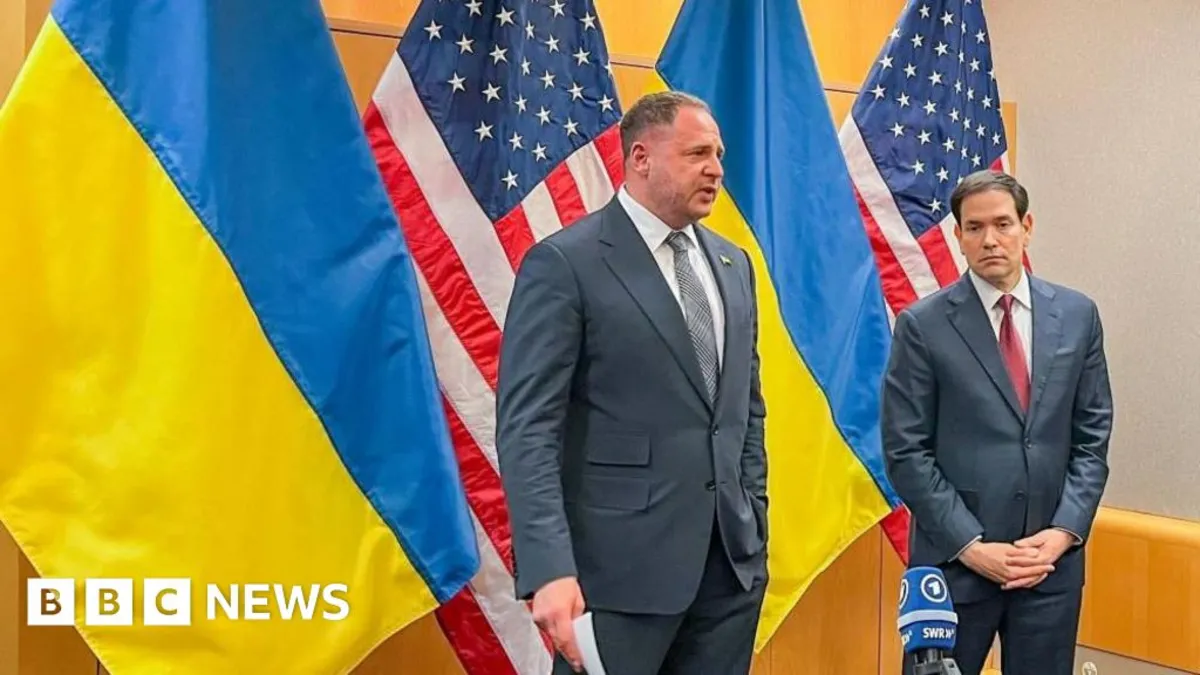
Former President Donald Trump has expressed a strong desire for a peace deal in Ukraine. However, this urgency is complicated by Ukraine's insistence on not agreeing to any terms that could be perceived as a surrender. Recently, the United States has been pressuring Ukraine to finalize a deal by Thanksgiving, which has led to significant pushback from Kyiv. In response, Ukrainian officials scrambled to engage in discussions in Geneva, leading to intense diplomatic activity over the weekend.
Throughout Sunday, delegates from the United States and Ukraine were seen moving between key venues in black limousines, accompanied by national security advisers from Germany, France, and the UK. The atmosphere was tense, and Ukrainian negotiator Andriy Yermak appeared visibly concerned. The initial proposals presented during these talks were heavily skewed in favor of Russian demands, prompting U.S. Secretary of State Marco Rubio to assert that the document had not been drafted by the Kremlin.
Trump's clear message was that Ukraine needed to sign the agreement quickly or face unspecified consequences, forcing Kyiv to engage in the negotiations. By Sunday night, Rubio announced that there had been "tremendous progress" in the talks, although he was vague about the specifics, describing the situation as "delicate." A joint statement between Ukraine and the U.S. hinted at a new agreement, referred to as an updated and revised framework document. This document, however, has yet to be made public.
According to Sergiy Kyslytsya, Ukraine's Deputy Foreign Minister, there is talk of a new 19-point plan that significantly deviates from the original draft. This revised plan appears to incorporate amendments suggested by European allies, making it more acceptable to Ukraine. Notably, the automatic veto on future Ukrainian NATO membership has been removed, along with restrictions on troop numbers within Ukraine's armed forces. While it states that no Western troops would be permanently stationed in Ukraine, it does not impose an outright ban.
One of the most sensitive issues remains the question of territory, particularly the regions in the Donbas that Ukrainian soldiers have fought to defend. The new proposal stipulates that there will be no handover of these territories to Russia without negotiation, and Ukraine aims to recover occupied land through diplomatic means. Importantly, discussions around amnesty for war crimes have been removed, highlighting the seriousness of the situation.
Perhaps the most critical aspect of the negotiations is the inclusion of security guarantees. British Prime Minister Sir Keir Starmer has indicated that Ukraine could receive protections akin to Article 5 of NATO, implying that the U.S. would be obligated to defend Ukraine in the event of another Russian invasion. This security assurance is a non-negotiable point for Ukraine, making it a focal point of ongoing discussions.
Despite the optimistic tone from some officials, including Germany's Chancellor Friedrich Merz, who described the deal as "significantly modified," it remains unclear how many of the European proposals have been integrated into the new framework. The rapid shift from a pro-Russian deal to a more favorable position for Ukraine raises questions about the influence of U.S. hardliners like Trump's envoy, Steve Witkoff, who previously echoed Russian narratives.
While there appears to be momentum behind the push for a peace deal, the situation remains precarious. Analysts, including Tatiana Stanovaya from the Carnegie Russia Eurasia Center, suggest that Russian President Vladimir Putin is currently more confident militarily, influenced by various internal crises in Ukraine, including corruption scandals and troop mobilization issues. This context complicates the prospect of a genuine resolution to the conflict.
In summary, while Trump's call for a peace deal has injected new energy into the discussions, the reality on the ground remains complex. Ukraine continues to seek a compromise that does not compromise its sovereignty, while Russia maintains a firm stance on its demands. The outcome of these negotiations will ultimately depend on both sides' willingness to engage genuinely in the pursuit of lasting peace.